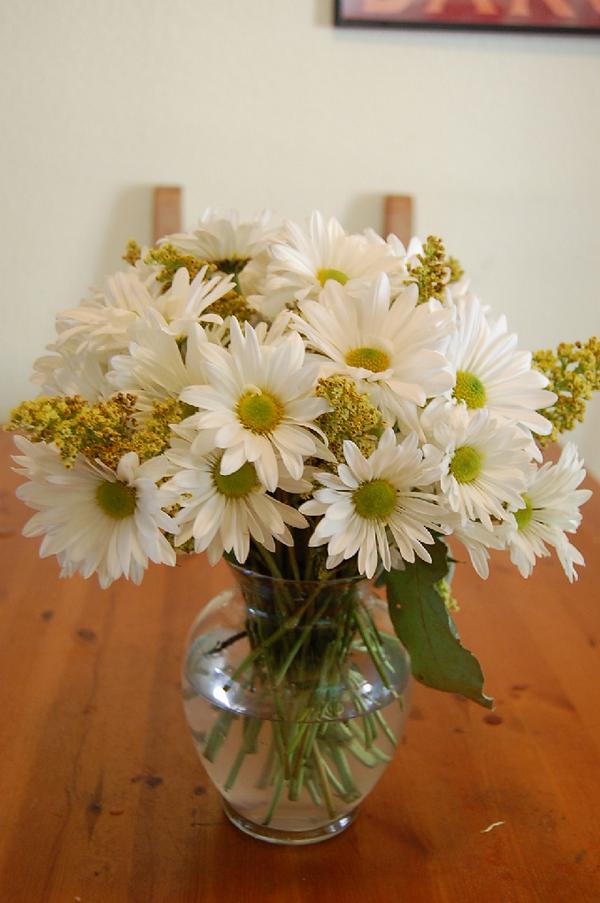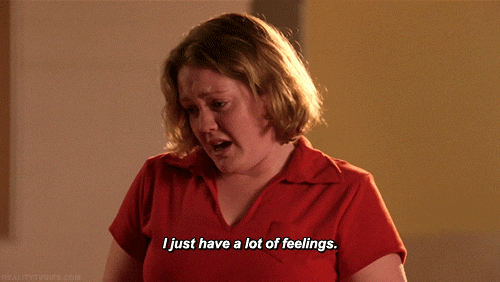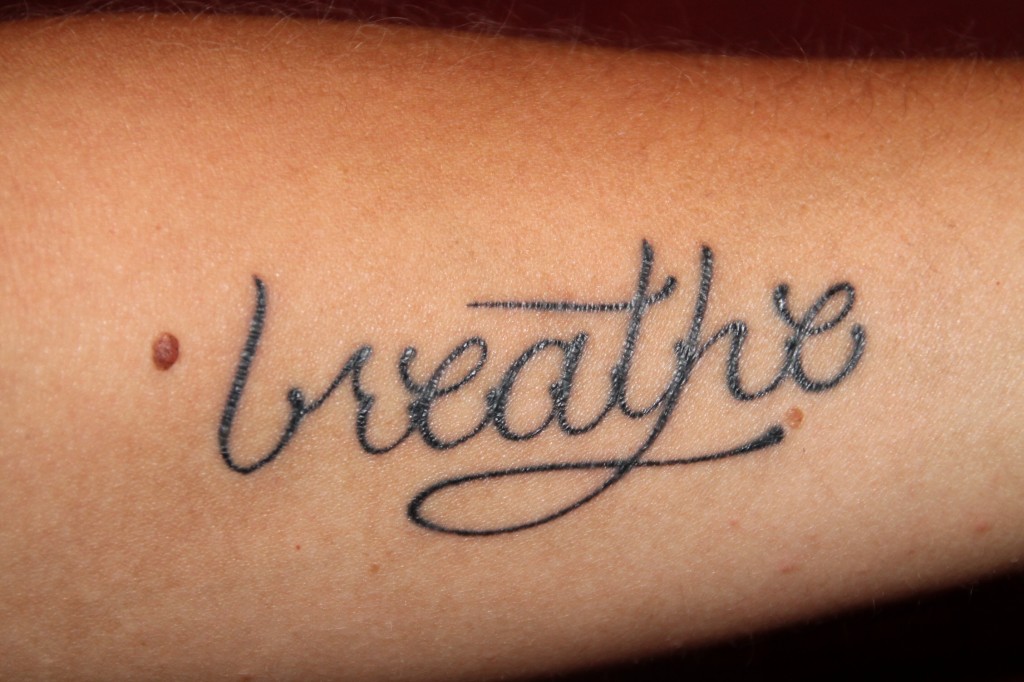
I’m not one to brag, but I’ve gotten really really good at something. Like, so good that this week alone I had two separate friends, in two separate instances, tell me what a bang-up job I’ve been doing. These were not happy conversations either, but uncomfortable ones. Conversations that left me tired and sad. Yes, I’ve gotten very good at it, and I’m not proud of it.
In the interest of not keeping you in suspense:
I push people away. I withdraw into a hole, I vanish from groups, I decline invitations, I give vague responses, I ignore my phone, I stop answering texts. My life revolves around spending time with the worst best friend that I never remembered inviting to the party, but who all too often steadfastly refuses to leave.
It is a sneaky beast, depression. It is both a liar and a thief, and along with its frequent cohort anxiety, it wraps around you so tightly that you start to lose track of where it ends and you begin. It suffocates you, it holds you down, all the while making you feel like somehow you chose it. Which makes you feel even worse. How broken do you have to be inside to choose that?
Because the thing is, you did not choose it. It chose you. For a myriad of possible reasons, you’re one of the unlucky ones. I think it’s that fear though, that belief that people are going to look at you and think you’re causing it, think that if you just chose to you could “snap out of it” at a moment’s notice, that makes it so hard to talk about. That makes it the one thing you NEVER talk about, the thing that you hold so close it’s as if it were a near and dear secret. That makes it the reason – if you’re like me – that you push away even your closest friends, because even if you end up totally alone, there’s something somehow… safer… about being alone. Because depression lies, and depression makes you believe the lies.
You don’t have to hide it. You don’t have to be alone.
Last night, when I shared on Facebook that I was going to be writing about depression, within minutes I had over 100 “likes”, and dozens of people virtually raised their hands to say that they too, had suffered. People get it. And the ones who don’t? The ones who may not have experience of their own? They want to help, too. Desperately. My friends, on those occasions when I’ve let them in, have been literal lifelines to me when I needed them. Reach out to someone. Reach out to that person who you know in your heart of hearts will just be there.
If you’re the friend, there are lots of things you can do to provide support…. and lots of (well-meaning!) things that, well… really don’t help. The list that follows is born of a desire to help people understand, and it is far from exhaustive. It’s merely a place to start, from my own personal experience. My top six least and most helpful responses from my friends. If for no other reason, because it’s beyond time to start talking about this.
If you have a friend who’s suffering from anxiety and/or depression:
DON’T tell them to “cheer up”
Or to “look on the bright side,” or to just “focus on the positive.” Having a positive attitude is all well and good of course, but if it were that simple, no one would be depressed. It’s not something that one can just “snap out of”, so it’s a little insulting when it’s treated as such. Depression is a very, very different thing than being bummed because your favorite team lost the Super Bowl.
DON’T play doctor
This is perhaps the most frustrating to me. Particularly in this day and age of such readily available information on alternative remedies such as essential oils, herbs, and homeopathics, everyone is anxious to diagnose and treat everyone else. Please, please resist this urge. It’s awesome if your best friend’s sister’s boyfriend had great luck with shock therapy, but that doesn’t mean it’s the answer for everyone. Chances are good that your friend has already heard of all her options (and likely, has tried many or all of them), and if she hasn’t, it’s all readily available on Google. What works for one person at one point in their journey may not work for another, or even for the same person at a different time. So your suggestions are, at best, lucky guesses that were either tried already and rejected, already in use, or on a list of things to look at someday when the time is right. Either way, what your friend needs you to be is just that: a friend. Not a doctor.
DON’T play therapist, either
Therapy is such a personal thing. Some people love it and swear by it, some people hate it and avoid it at all costs. (I’m the latter) We all know it’s an option though, one we can utilize when/if it feels like the right decision. When we do make the often difficult choice to open up to you as a friend though, what we’re looking for is someone to listen, not to try to fix it. You can’t fix it. I had someone say to me once, “I’m sure if we can just sit down and talk about it, we can get this all sorted out in about an hour.” I declined the invitation. It just doesn’t work that way. And even if it did, it would be something your friend would initiate on her own, with a professional.
DON’T tell them they just need more faith in God
Or that they need to pray harder. Or that they need to spend more time studying their Bible. Or that if they just trust that God will take it from them, then He will. It doesn’t work that way either. God is not a gumball machine, where you just put in a quarter, and out pops your request. Even worse, if your friend’s depression remains, she could be left thinking that there is something wrong with either her God or her faith, neither of which is the case. Some of the most devout, faithful, loving people I know have suffered from depression. Reaching out to God is great (and very helpful!) if that’s your inclination, but it’s not a magic pill. To imply otherwise is to tell your friend exactly what I spoke about up above… that her depression is in some way her fault, and that if she just TRIED HARDER, and DID BETTER and prayed the RIGHT way, she could choose to be rid of it.
DON’T give up on them
Sometimes when I’ve gone through a particularly bad or long stretch, I genuinely worry that I’m not going to have any friends left when it’s all over. It’s not a conscious choice to push everyone away, but just an unfortunate side-effect. The great irony of course is that those times when everything about me is screaming, “Stay away from me. Don’t talk to me. NO, I don’t want to go out. NO, I don’t want to chat. NO, there’s nothing you can do to help…..” those are the times when I need a friend the most. Don’t give up.
DON’T tell them you understand
Unless you really do. Things like depression are very, very individual, and can manifest themselves in a myriad of ways. I have dealt with chronic depression and anxiety off and on for my entire adult life, but that doesn’t necessarily mean I understand the situational depression brought on by, say, a divorce. And that divorced person doesn’t necessarily understand the struggles of ongoing depression due to financial hardships. Or the anxiety and stress that occurs after a traumatic event. The fact is, we can’t always understand. But we can be a friend. We can support. We can LISTEN. We can always listen.
DO ask how you can help
Now, keep in mind that a lot of the time the answer is going to be, “I don’t know” or, “You can’t,” but simply asking if you can help goes a long way towards letting someone know that you care about them. Offering to help is a thoughtful, non-threatening way to say, “Hey, I’m here if you need me.” A friend asked me how she could help just this week, and though I didn’t have an answer for her (sometimes, there just really isn’t anything you can do other than be there), the sincerity of the question itself helped immensely.
DO be honest with your feelings
One of the coolest things anyone ever said to me when I was in a really bad place was, “I don’t know what to say. I never know what to do in these situations. But let’s have coffee sometime.” It was perfect because 1) it was honest, and 2) she wasn’t trying to “fix” anything, and was even admitting that she didn’t know how even if she wanted to and 3) she was letting me know she was available when/if I needed her. All of that from a simple, “I don’t know what to say.” If you don’t know what to say, or don’t know what to do, that admittance is hugely appreciated (and greatly preferred over insincere platitudes)
DO keep reaching out
The partner of, “Don’t give up on them,” reaching out to your friend lets her know that you’re still there, and that you’re thinking of her. Keep inviting her to things (but don’t take it personally if she says no!), text her now and then to say hello, send her her favorite chocolate. I got a few well-timed “thinking of you” cards in the mail last month – the post-office mail, not email – and the fact that someone took the time to get the card, write a few kind words of encouragement, and mail it made such a difference.
DO offer an ear, and/or a shoulder
“I’m here if you want to talk.” Seven of the most powerful words you can utter when you don’t know what else to do. I’ll be honest: A lot of the time I just don’t want to talk about it at all (see the next item on the list), but when I do, it’s an invaluable thing to know that I have people I can go to, day or night, and that they’ll listen. No judgement, no advice-giving, no preaching…. just listening. I cannot emphasize the importance of listening enough. I think we’ve become a largely self-absorbed society of people, always talk talk talking, and not enough listening.
DO be sensitive to when they do not want to talk
I had a friend several years ago who had a very hard time letting things lie when she knew something was up. “Spill it,” is what she’d say to me over and over, wanting me, harping on me really, to talk about it. “What’s going on with you? Why are you in such a bad mood all the time?” (As an aside, if you really want someone with depression to open up to you, it’s not a super idea to refer to said depression as “a bad mood.”) Yes, talking can be a very healing thing. Yes, it’s important to let them know you’re there for them. But sometimes – a LOT of the time – what that person needs is not to talk but just to be. To be with someone safe and familiar, someone who’s going to give them support, yes, but also give them space. When they want to talk, they’ll tell you.
DO continue to act “normal”
While it’s true that there is nothing you can do to help your friend “snap out” of a depression, sometimes it’s good – and welcome – to have a distraction. Talk about your favorite TV shows, tell funny stories, share your favorite YouTube clips, share your life.
As much as you would like to, you can’t make it go away. You just can’t. What you can do though, is soften the edges, provide a safe to fall, and be the one that when the time comes (and the time will come) will be there to listen.

















